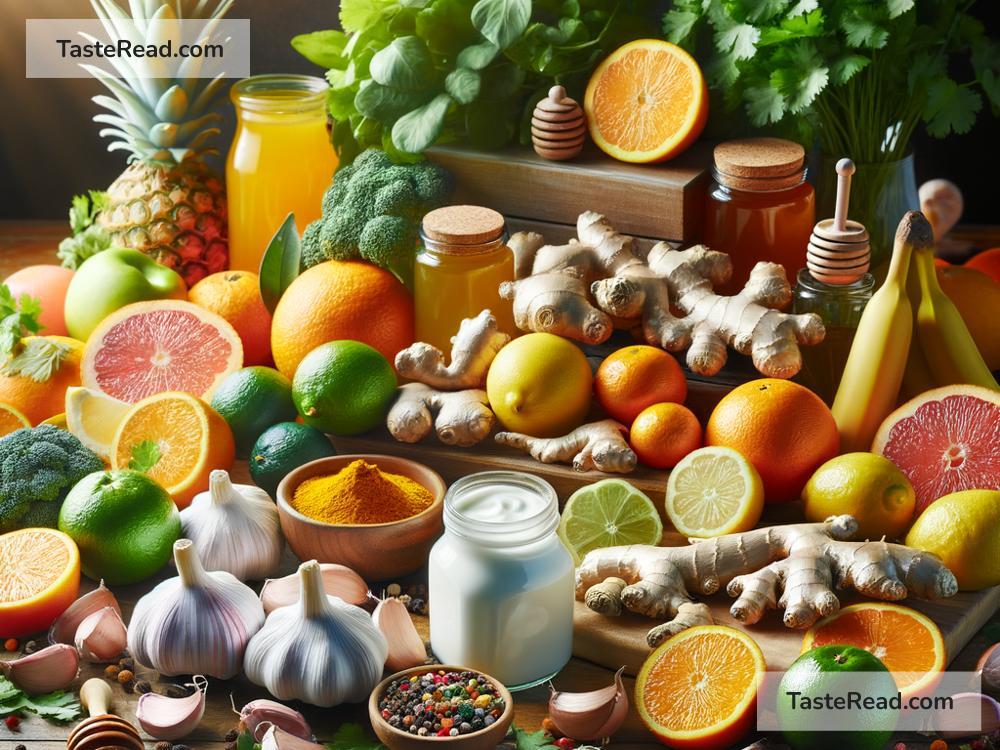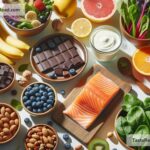Foods That Help Reduce Pathogen Load and Boost Wellness
Pathogens are tiny organisms like bacteria, viruses, and parasites that can make us sick. Thankfully, nature provides us with many foods that can help fight these harmful invaders and improve our health. By eating certain foods that have antimicrobial, antiviral, or immune-boosting properties, we can help reduce the pathogen load in our bodies, protect ourselves from infections, and support healing if we’re already sick. In this article, we’ll explore simple, accessible foods that can play this important role.
What Is Pathogen Load?
Pathogen load refers to the number of harmful microorganisms in the body. A high pathogen load means there are many pathogens, which can overwhelm the immune system and lead to illness. Fortunately, we can take steps to lower this load with smart food choices that support immunity while actively fighting harmful microbes.
Foods That Help Reduce Pathogen Load
Below are some common foods known for their powerful ability to fight pathogens and support overall wellness.
1. Garlic
Garlic is a natural powerhouse against pathogens. It contains a compound called allicin, which has antimicrobial properties. Studies show that garlic can help kill harmful bacteria, viruses, and fungi. Including fresh garlic in your meals or consuming it raw (if tolerated) is a simple way to strengthen your body’s defenses.
How to use: Chop or crush raw garlic to activate its allicin and add it to soups, salads, or stir-fries.
2. Ginger
Ginger isn’t just great for soothing your stomach—it also has antimicrobial properties that can help fight bacteria, viruses, and fungi. Ginger may improve your body’s ability to defend itself, especially during cold and flu season.
How to use: Brew ginger tea using fresh ginger slices or add grated ginger to smoothies and dishes.
3. Turmeric
Turmeric, and its active compound curcumin, is widely known for its anti-inflammatory and antimicrobial properties. It can help inhibit bacterial growth and boost your immune system. Turmeric is a common spice that’s easy to add to soups or sprinkle on roasted vegetables.
How to use: Mix turmeric into smoothies, curry dishes, or make golden milk by combining it with warm milk and a pinch of black pepper (which enhances curcumin absorption).
4. Honey
Raw honey, especially manuka honey, is an excellent natural remedy for reducing pathogen load. It has antimicrobial and antiviral properties, making it especially useful for soothing throat infections and healing wounds. It also contains enzymes and antioxidants that support your immune system.
How to use: Use raw honey as a natural sweetener, add it to tea, or enjoy a spoonful directly when you’re feeling under the weather.
5. Fermented Foods
Fermented foods like yogurt, kefir, sauerkraut, kimchi, miso, and kombucha are rich in probiotics. Probiotics are beneficial bacteria that help maintain a healthy gut microbiome. A balanced gut microbiome can crowd out harmful pathogens, reduce inflammation, and strengthen your immune system.
How to use: Incorporate fermented foods into your meals daily. For example, enjoy a serving of yogurt with fruit or add a spoonful of sauerkraut to your salad.
6. Citrus Fruits
Citrus fruits like oranges, lemons, grapefruits, and limes are packed with vitamin C, which is essential for a strong immune system. Vitamin C acts as an antioxidant and helps your body fight off viruses and bacteria. It also assists in reducing inflammation throughout the body.
How to use: Start your day with fresh orange juice, squeeze lemon into warm water, or snack on a grapefruit.
7. Onions
Onions, like garlic, contain powerful compounds that have antimicrobial properties. Quercetin, a flavonoid found in onions, helps reduce inflammation, fight viruses, and improve overall immune function.
How to use: Add onions to stir-fries, soups, sandwiches, or salads. Both raw and cooked onions offer benefits.
8. Leafy Greens
Leafy greens such as spinach, kale, and parsley are rich in nutrients like vitamins A and C, which support immune function. They also contain powerful antioxidants that help the body fend off pathogens and repair damage caused by infections.
How to use: Blend leafy greens into smoothies, toss them into salads, or sauté them with garlic and olive oil for a healthy side dish.
9. Coconut Oil
Coconut oil contains lauric acid, which has antiviral, antibacterial, and antifungal properties. It can help combat harmful microbes in the body and support gut health.
How to use: Cook with coconut oil or add a small spoonful to smoothies or hot drinks for an easy immune boost.
10. Green Tea
Green tea is a great source of antioxidants, particularly catechins, which are known to fight pathogens. Drinking green tea regularly can help protect your body from infections and reduce inflammation.
How to use: Brew green tea and enjoy it plain or with a bit of honey and lemon.
Other Tips for Reducing Pathogen Load
Besides eating immune-supporting foods, be sure to maintain good hygiene, stay hydrated, and get enough sleep. Drinking plenty of water helps flush toxins out of your body, while rest supports your immune system’s ability to fight pathogens effectively.
Conclusion
Pathogens can compromise our health, but the right foods can help reduce pathogen load and boost our body’s ability to fight back. Garlic, ginger, turmeric, honey, fermented foods, citrus fruits, onions, leafy greens, coconut oil, and green tea all have properties that protect us from harmful microbes and support immunity. Including these foods in your daily diet is an easy and natural way to stay healthier and prevent infections.
Start small—add a spoonful of honey to your tea, toss spinach into your smoothie, or cook with garlic and turmeric—and enjoy their powerful benefits for your body and wellbeing.


